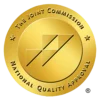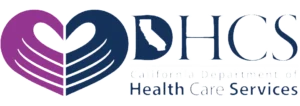Determining whether you can work while in rehab is a question many individuals facing substance use disorders or mental health challenges contemplate. Balancing recovery with professional responsibilities can be intricate, but understanding your options and rights can empower you. This article aims to delve into various aspects of rehab, the implications of working during this period, and what legal protections you have as an employee.
 Rehab, short for rehabilitation, refers to a structured program designed to help individuals recover from substance abuse, addiction, or mental health issues. These programs provide therapeutic interventions aimed at restoring a person’s physical and psychological health, equipping them with the necessary tools to maintain sobriety.
Rehab, short for rehabilitation, refers to a structured program designed to help individuals recover from substance abuse, addiction, or mental health issues. These programs provide therapeutic interventions aimed at restoring a person’s physical and psychological health, equipping them with the necessary tools to maintain sobriety.
Rehab programs can vary widely in duration, intensity, and approach depending on individual needs and the severity of the condition. They often incorporate counseling, support groups, medication management, and life skills training. Ultimately, the goal of rehab is to initiate a positive lifestyle change that supports long-term recovery. Many facilities also offer holistic approaches, integrating yoga, meditation, and nutritional counseling, which can enhance healing and promote overall well-being.
The Importance of Rehab in Recovery
Through therapy and group support, individuals can process their feelings, learn coping mechanisms, and build a community of peers who share similar struggles. This environment can foster accountability and personal growth, essential for successful recovery. Additionally, many rehab programs include aftercare planning, which helps individuals transition back into everyday life by providing ongoing support and resources. This can include follow-up therapy sessions, support group meetings, and connections to community resources, ensuring that individuals are not left to navigate their recovery journey alone once they leave the facility.
The Possibility of Working During Rehab
Balancing Work and Rehab
For many, the idea of maintaining employment while undergoing rehab may seem daunting. However, some individuals find that working allows them to maintain a sense of normalcy and purpose during a challenging time. Balancing work with rehab requires careful planning and communication, particularly regarding scheduling and commitments.
It’s vital to assess the intensity of the rehab program. Inpatient programs may demand full attendance and engagement, leaving little room for work. Conversely, outpatient programs tend to offer more flexibility, allowing individuals to manage work responsibilities alongside treatment. Ensuring a manageable workload and establishing supportive relationships with employers and colleagues can facilitate this balance. Additionally, it may be beneficial to discuss your situation with a supervisor or HR department to explore options for flexible hours or remote work, which can ease the transition and reduce stress during this period.
The Pros and Cons of Working While in Rehab
Working during rehab comes with its set of advantages and disadvantages. Here are some points to consider:
Pros
- Maintaining Routine: Having a job can help individuals keep a daily structure, which is important for developing healthy habits.
- Financial Security: Continuing to earn an income can relieve stress related to finances, allowing individuals to focus on their recovery.
- Sense of Normalcy: Work can provide a distraction from the challenges of rehab and connect individuals with the outside world.
Cons
Potential Burnout: Managing work and rehab demands can lead to fatigue, impacting both recovery and job performance.
- Time Conflicts: Treatment sessions may intersect with work responsibilities, complicating commitments.
- Increased Stress: Juggling both commitments can heighten anxiety, counteracting the healing process mandated by rehab.
The emotional toll of balancing work and rehab should not be underestimated. Individuals may experience feelings of guilt when unable to meet work expectations or when they need to prioritize their treatment over deadlines. This emotional strain can be compounded by the stigma surrounding rehab, where some may fear judgment from colleagues or superiors. Open communication about one’s situation can help mitigate these feelings, fostering a supportive work environment. It can also be beneficial to seek support from peers who have navigated similar challenges, as sharing experiences can provide insight and encouragement during this critical time.
It’s essential to recognize that every individual’s journey through addiction treatment is unique. What works for one person may not be suitable for another. Therefore, it’s crucial to regularly evaluate one’s capacity to manage both work and treatment, making adjustments as necessary. Utilizing tools such as time management apps or setting clear boundaries between work hours and treatment times can aid in maintaining focus and reducing overwhelm. Ultimately, the goal is to create a sustainable balance that promotes recovery while allowing for professional growth and fulfillment.
Different Types of Rehab Programs
Inpatient Rehab Programs
Inpatient rehab programs require individuals to reside at a treatment facility for a specified duration. This environment is structured and provides 24/7 care, which can be beneficial for those struggling with severe addiction or co-occurring disorders.
Inpatient rehab often focuses on intensive therapy sessions, medical supervision, and various therapeutic activities. Individuals do not need to worry about daily life stressors, enabling them to concentrate solely on their recovery. The immersive nature of inpatient rehab allows for a comprehensive approach to treatment, often including individual counseling, group therapy, and holistic practices such as yoga and meditation. This multifaceted approach helps individuals not only address their addiction but also develop coping strategies and life skills that are essential for long-term recovery.
Additionally, many inpatient facilities provide a range of amenities designed to promote healing and well-being. From nutritious meal plans to recreational activities, these programs create a supportive atmosphere that encourages personal growth. The camaraderie built among residents can also be a crucial component of the healing process, as individuals share their experiences and support one another through their journeys. This sense of community often fosters a deeper understanding of addiction and reinforces the importance of connection in recovery.
Outpatient Rehab Programs
Outpatient rehab programs offer more flexibility, allowing individuals to live at home while attending scheduled treatment sessions. These programs can vary in frequency and duration, catering to the needs of the participant.
Outpatient options are ideal for those with supportive home environments and less severe addiction issues. Participants can maintain their work or school commitments while still accessing essential therapeutic services. However, a strong commitment to the program is vital for success. Outpatient rehab often includes a combination of individual therapy, group sessions, and educational workshops that equip participants with the tools necessary for recovery. The ability to apply these lessons in real-time, within their daily lives, can significantly enhance the learning experience.
Many outpatient programs emphasize the importance of aftercare planning and relapse prevention strategies. Participants are encouraged to develop a robust support network, which may include family members, friends, or support groups such as Alcoholics Anonymous (AA) or Narcotics Anonymous (NA). This ongoing support is crucial, as it helps individuals navigate the challenges of everyday life while maintaining their sobriety. The flexibility of outpatient programs allows for a tailored approach, ensuring that each participant can find a balance between their recovery journey and personal responsibilities.
Legal Rights and Protections for Employees in Rehab
Understanding the Americans with Disabilities Act (ADA)
The Americans with Disabilities Act (ADA) is a critical piece of legislation that protects against discrimination for individuals with disabilities, including those in recovery from addiction. Under the ADA, employers are required to offer reasonable accommodations for employees who are undergoing treatment.
Examples of reasonable accommodations include flexible work hours, modified workloads, or extended leave. It is essential for individuals in treatment to understand their rights under the ADA and to advocate for themselves effectively in the workplace. Additionally, the ADA prohibits employers from retaliating against employees who request accommodations or disclose their disabilities, ensuring that individuals can seek the support they need without fear of negative repercussions. This legal framework empowers employees to engage in open dialogues with their employers about their needs, fostering a more inclusive and supportive work environment.
The Role of the Family and Medical Leave Act (FMLA)
The Family and Medical Leave Act (FMLA) allows employees to take unpaid leave for serious health conditions, including mental health and substance use disorders. Eligible employees can take up to 12 weeks of job-protected leave within a year without fear of losing their job.
FMLA can support individuals seeking treatment in rehab, providing them the necessary time to focus on recovery without the added stress of job insecurity. To qualify, employees must meet specific criteria regarding work duration and the size of the employer. It is also important for employees to notify their employers as soon as possible about their need for leave, as this can help facilitate a smoother transition and ensure that their rights are upheld. Furthermore, understanding the nuances of FMLA can help employees navigate the complexities of their recovery journey, allowing them to prioritize their health while maintaining their professional responsibilities. Employers, too, benefit from this act, as it encourages a culture of empathy and understanding, ultimately leading to a more productive workforce.
Communicating with Your Employer About Rehab
When and How to Disclose Your Rehab to Your Employer

Deciding whether to disclose your rehab status to your employer can be a difficult choice. Transparency about your situation may lead to more understanding and support, but it also carries the risk of stigma or misunderstanding.
If you choose to disclose, timing is essential. It may be beneficial to inform your employer before commencing rehab or during the early stages of your treatment. This allows them to make necessary adjustments to your workload and responsibilities in advance.
Dealing with Potential Workplace Stigma
 Workplace stigma regarding mental health and substance use can be daunting. Despite growing advocacy for inclusivity, some employees may still fear negative perceptions or judgment from colleagues and management.
Workplace stigma regarding mental health and substance use can be daunting. Despite growing advocacy for inclusivity, some employees may still fear negative perceptions or judgment from colleagues and management.
Combating stigma entails fostering open conversations about mental health and recovery. Individuals in rehab should be aware of their rights and seek supportive environments where their experiences are acknowledged as valid. Seeking help from HR or support groups within the workplace can be invaluable during recovery.
Do You Need More Information? Contact Bayview Recovery Center Today!
To find out more information about the services we offer, contact Bayview Recovery Center today!

 Rehab, short for rehabilitation, refers to a structured program designed to help individuals recover from substance abuse, addiction, or mental health issues. These programs provide therapeutic interventions aimed at restoring a person's physical and psychological health, equipping them with the necessary tools to maintain sobriety.
Rehab, short for rehabilitation, refers to a structured program designed to help individuals recover from substance abuse, addiction, or mental health issues. These programs provide therapeutic interventions aimed at restoring a person's physical and psychological health, equipping them with the necessary tools to maintain sobriety.

 Workplace stigma regarding mental health and substance use can be daunting. Despite growing advocacy for inclusivity, some employees may still fear negative perceptions or judgment from colleagues and management.
Workplace stigma regarding mental health and substance use can be daunting. Despite growing advocacy for inclusivity, some employees may still fear negative perceptions or judgment from colleagues and management.



